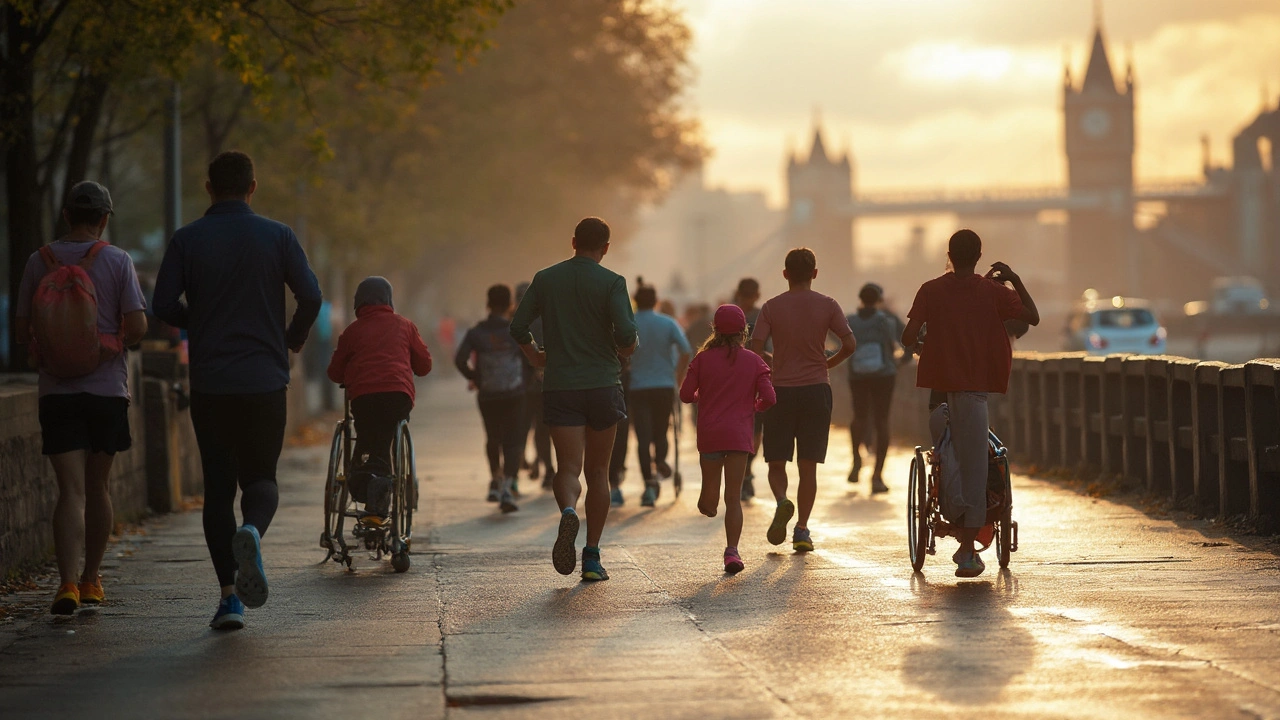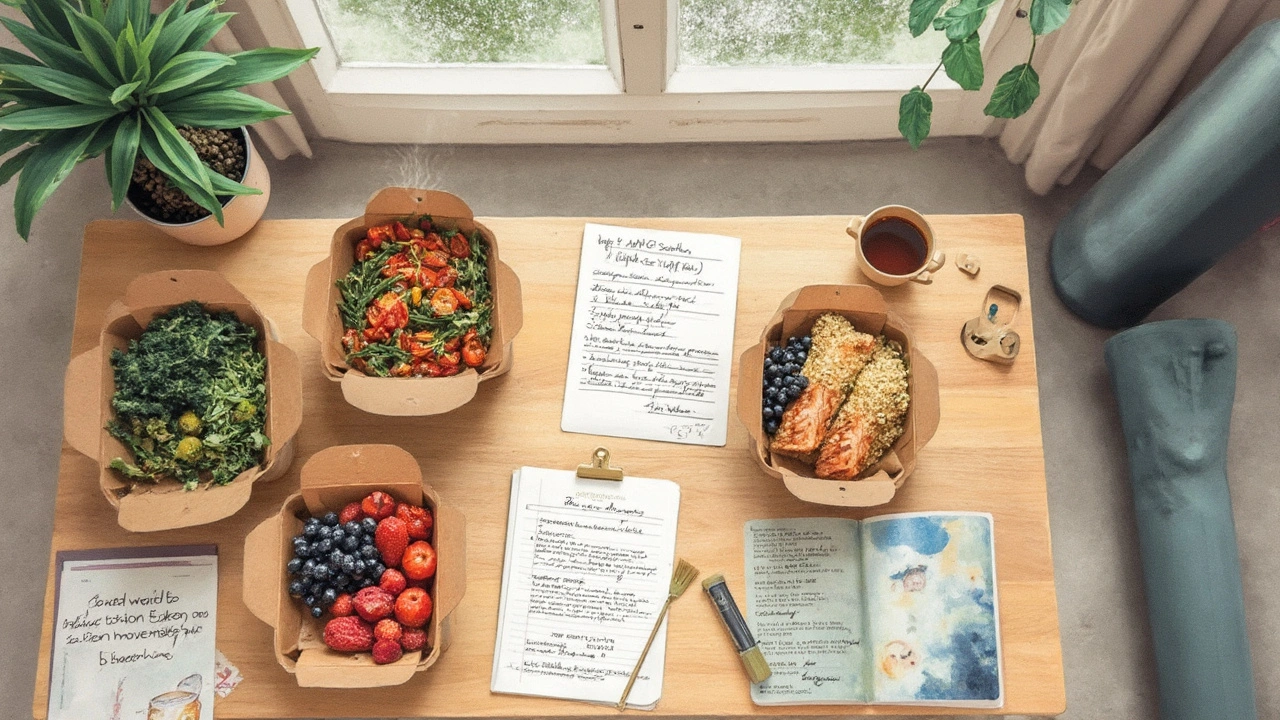You don’t need a perfect routine. You need a clear plan that fits your life. This guide cuts the noise and shows you the 10 non‑negotiable health goals that actually move the needle-plus how to lock them in without burning out. Expect realistic targets, Aussie‑relevant benchmarks, and a simple system you can run on busy weeks.
TL;DR / Key takeaways
- Focus on 10 core levers: sleep, movement, strength, mobility, food quality, protein/fibre, hydration, mental health, prevention, and substance limits.
- Targets that work: 7-9 hours sleep; 150-300 minutes weekly movement; 2 strength days; 2 fruit + 5 veg; 25-30 g fibre; ~1.2-1.6 g protein/kg; 30-35 mL water/kg; BP under 120/80 (optimal), LDL low; up‑to‑date vaccines.
- Make goals tiny and scheduled. Use habit stacking, environment design, and a weekly reset. Track the few numbers that matter.
- Brisbane heat? Train early, hydrate, and keep sun‑safe. Skin checks matter here.
- If you do nothing else: sleep on a schedule, walk daily, lift twice a week, eat plants and protein at each meal, keep stress rituals, see your GP once a year.
The 10 health goals everyone should set
-
Sleep on a schedule (7-9 hours)
- What to do: Go to bed and wake up at the same time, even on weekends. Aim for 7-9 hours most nights (adults). Set a 30‑minute wind‑down: dim lights, no work, phone parked.
- Why it matters: Solid sleep boosts mood, memory, immune function, and weight regulation. The Sleep Health Foundation and AASM agree adults do best around 7-9 hours.
- How to start tonight: Set an alarm for “lights out” and another for “start winding down” 45 minutes earlier. If you wake up a lot, cut caffeine after 12 p.m. and keep the bedroom cool and dark.
-
Move your body daily (7,000-10,000 steps)
- What to do: Get 7k-10k steps most days. Break up sitting every 30-60 minutes with a 2-3 minute walk or stretch.
- Why it matters: Daily movement lowers blood sugar after meals, boosts energy, and protects your heart. In Brisbane, try early morning walks to dodge the heat.
- How to start: Add a 10‑minute walk after breakfast and lunch. Park further. Take stairs. Pace while on calls.
-
Hit weekly exercise targets (150-300 min + 2 strength sessions)
- What to do: 150-300 minutes of moderate cardio (or 75-150 minutes vigorous), plus two strength sessions targeting major muscle groups.
- Why it matters: This is the WHO’s gold‑standard range for lower disease risk and longer life.
- How to start: Book two 30-40 minute strength workouts and three 30‑minute brisk walks per week. If time‑poor, try 3×10‑minute bouts.
-
Build strength and mobility
- What to do: Two full‑body lifts weekly (squats, pushes, pulls, hinges) and 5-10 minutes of mobility daily (hips, ankles, thoracic spine).
- Why it matters: Muscle keeps you metabolically healthy, mobile, and resilient with age. Mobility keeps joints happy and reduces injury risk.
- How to start: Pick 5 moves: squat, hinge (deadlift), push (push‑up), pull (row), carry (farmer’s carry). Do 2-3 sets of 6-12 reps. Finish with a 5‑minute stretch flow.
-
Eat plants at every meal (2 fruit + 5 veg daily)
- What to do: Aim for 2 serves of fruit and 5 of veg, most days. Fill half your plate with plants, a quarter with protein, a quarter with carbs, and add healthy fats.
- Why it matters: The Australian Guide to Healthy Eating points to better heart, gut, and brain outcomes with plant‑rich diets.
- How to start: Add veg to breakfast (spinach omelette or tomato on toast). Keep frozen veg and canned beans ready.
-
Protein and fibre targets
- What to do: Protein: ~1.2-1.6 g/kg/day (more if you’re older or very active). Fibre: 25-30 g/day. Hit both by prioritising lean meats, fish, eggs, dairy or soy, legumes, wholegrains, nuts, seeds.
- Why it matters: Protein preserves muscle and keeps you full. Fibre feeds gut microbes, steadies blood sugar, and supports heart health.
- How to start: Add a protein source to every meal. Swap white bread/rice for wholegrain. Add 1-2 tbsp chia or flax to yoghurt or porridge.
-
Hydrate on purpose
- What to do: As a rule of thumb, 30-35 mL water per kg body weight per day (more in heat, during exercise, or if pregnant/breastfeeding). In Brisbane summers, front‑load morning fluids.
- Why it matters: Hydration supports energy, cognition, digestion, and exercise performance.
- How to start: Fill a 1‑litre bottle and finish it by lunch. Add electrolytes for long, sweaty sessions.
-
Look after your mind (stress, mood, connection)
- What to do: 10-20 minutes daily of a calming practice (breathwork, meditation, prayer, journaling, nature walk). Protect 1-2 social blocks weekly.
- Why it matters: Regular stress practices reduce anxiety and improve sleep. Social ties are a strong longevity factor.
- How to start: Two minutes of slow nasal breathing before each meal. A phone‑free 15‑minute walk outside at lunch.
-
Know your numbers and stay current on prevention
- What to do: Annual GP check for BP, lipids, glucose/HbA1c. Keep vaccinations current (ATAGI schedule). Book dental twice a year. In Australia, add regular skin checks.
- Targets: Blood pressure under 120/80 mmHg is optimal; under 130/80 is good for most with risk. Aim for healthy LDL and triglycerides per Heart Foundation Australia guidance.
- How to start: Put a yearly reminder in your calendar. If you haven’t had a skin check and you’re outdoors a lot, prioritise it.
-
Low‑risk alcohol, zero tobacco, watch stimulants
- What to do: Alcohol: follow Australia’s NHMRC guideline-no more than 10 standard drinks a week and no more than 4 in one day. Don’t smoke or vape nicotine. Set a caffeine curfew (no later than midday if sleep is rough).
- Why it matters: This combo protects your heart, liver, sleep, and mental health. Brisbane sun plus alcohol can dehydrate fast-hydrate and use sun protection.
- How to start: Swap every second drink for sparkling water with lime. If you smoke, talk to your GP about prescription supports.

How to set and track them (step‑by‑step)
- Pick your top three for the next 4 weeks. Don’t chase all 10 at once. Choose one from movement, one from sleep/nutrition, and one from mental health/prevention.
- Make each goal painfully specific. Use when‑where‑how. Example: “At 6:30 a.m., Mon/Wed/Fri, I’ll do 30 minutes of strength at home: squats, rows, push‑ups, deadlifts, carries.”
- Scale to the floor, not the ceiling. Set a “minimum viable” version you can do on your worst day. If the plan is 30 minutes, your floor is 5. If you’re cooked, do the 5.
- Habit stack. Attach new actions to anchors you already do. “After brushing teeth at night, I set out my joggers and water bottle.” “After making coffee, I walk for 10 minutes.”
- Design your space. Put friction where you want less (hide the phone at night) and remove friction where you want more (leave dumbbells by the desk for 2×10 reps hourly).
- Plan B rules. Pre‑decide what happens when life sideswipes you. “If I miss my morning workout, I’ll walk 20 minutes at lunch.” “If dinner is takeout, I’ll add a bagged salad and order extra veg.”
- Track two numbers per goal. Keep it simple. Sleep: time in bed, wake time. Movement: steps, workouts done. Food: protein grams, fruit/veg serves. Stress: minutes practiced, mood 1-5.
- Run a weekly reset. On Sunday, glance at last week’s tracker, notice your roadblocks, and tweak. Book workouts, order groceries, fill your pillbox, and set reminders.
- Use small rewards. Non‑food treats work: new playlist, a swim, fresh flowers, 20 minutes of guilt‑free TV.
- Get help when needed. If pain, low mood, or sleep issues persist, see your GP or a qualified pro. Good help saves time.
Real‑world examples you can copy
Example 1: Desk‑bound and short on time
Goal trio: 7 hours sleep, 7,500 daily steps, two 25‑minute strength sessions.
Plan:
- Sleep: Phone in the kitchen at 9:30 p.m., lights out 10 p.m., wake 5:30 a.m. if training or 6 a.m. if rest.
- Movement: 10‑minute walk after breakfast and lunch; stairs only policy at work; 5‑minute stretch breaks at 11 a.m. and 3 p.m.
- Strength: Mon/Thu 6 a.m. home routine: goblet squats, push‑ups, dumbbell rows, RDLs, 3×8. Done by 6:30.
- Food: Protein at breakfast (Greek yoghurt + oats + berries). Salad kit + canned salmon for lunch. Veg‑first dinner rule.
Example 2: Busy parent
Goal trio: 2 fruit + 5 veg, hydrate to 2 L/day, 10‑minute nightly wind‑down.
Plan:
- Prep: Sunday chop veg; freeze smoothie packs (banana, spinach, chia). Put a 1‑L bottle at the school bag station.
- Meals: Veg sticks + hummus after school. One‑pan tray bake with chicken, potato, and broccoli twice a week.
- Wind‑down: 8:45 p.m. shower, stretch, gratitude list, phone out of room.
- Steps: Family walk after dinner, scooters welcome. It counts.
Example 3: Returning to fitness after injury
Goal trio: 5k steps/day, gentle strength 2×/week, breathwork 10 minutes/day.
Plan:
- Walks: 10 minutes after each meal instead of one long session.
- Strength: Slow tempo bodyweight moves approved by physio. Stop 2 reps before pain.
- Breathwork: 4‑seconds in, 6‑seconds out, 10 minutes. Calms the nervous system and helps sleep.
Example 4: Hot‑weather workaround (Brisbane summer)
Goal trio: 150 minutes cardio/week, two lifts, sun safety.
Plan:
- Timing: Outdoor walks before 7 a.m. or after sunset; indoor intervals at lunchtime if needed.
- Hydration: 500 mL water on waking, electrolytes on training days.
- Sun: Broad‑spectrum SPF 50+, hat, sunglasses. Seek shade midday. Book annual skin check.

Checklists, benchmarks, and mini‑FAQ
Quick daily checklist
- Slept 7-9 hours on a set schedule
- Hit 7k-10k steps or moved every hour
- Did planned workout or a 5‑minute fallback
- Ate plants at each meal (aiming for 2 fruit + 5 veg)
- Included protein at each meal; added fibre (wholegrains/legumes/nuts/seeds)
- Drank water across the day (clear urine by mid‑afternoon)
- Did 10 minutes of a calming practice
- Took meds/supplements as prescribed
Weekly reset checklist
- Booked workouts into calendar (and Plan B slots)
- Shopped for fruit, veg, proteins, wholegrains
- Prepped 2-3 easy meals; set healthy snacks in reach
- Refilled water/electrolyte stash
- Checked step/workout/sleep logs; nudged targets
- Scheduled any overdue health appointments (GP, dental, skin)
Benchmarks at a glance
| Area | Practical Target (Adults) | Useful Notes | Authority |
|---|---|---|---|
| Sleep | 7-9 hours; consistent schedule | Curfew caffeine after 12 p.m. if sensitive | Sleep Health Foundation; AASM |
| Steps / Activity | 7k-10k steps most days | Break up sitting hourly | WHO, 2020 Guidelines |
| Exercise | 150-300 min moderate or 75-150 min vigorous + 2 strength | Mix brisk walks, cycling, swimming, intervals | WHO |
| Fruit & Veg | 2 fruit + 5 veg per day | Half the plate plants | Australian Guide to Healthy Eating |
| Protein | ~1.2-1.6 g/kg/day | Higher if older or very active | Sports Nutrition & NHMRC context |
| Fibre | 25-30 g/day | Wholegrains, legumes, nuts, seeds | NHMRC |
| Hydration | ~30-35 mL/kg/day | More with heat/exercise | Practical clinical guidance |
| Blood Pressure | Optimal <120/80 mmHg | <130/80 if risk factors | Heart Foundation Australia |
| Alcohol | ≤10 standard drinks/week; ≤4/day | Some do better with zero | NHMRC (Australia) |
| Prevention | Annual GP checks; vaccines current | Skin + dental checks | ATAGI; Dept of Health |
Sources: World Health Organization 2020 Guidelines on Physical Activity; Australian Guide to Healthy Eating (NHMRC); Sleep Health Foundation; Heart Foundation Australia; ATAGI vaccine schedule; Cancer Council Australia.
Mini‑FAQ
- What if I can’t hit 150 minutes of exercise? Do 3×10 minutes most days. Short bouts still help. Build up slowly.
- Is 10,000 steps necessary? No. Benefits show from ~6-7k, especially if you also lift twice a week.
- How do I eat 5 serves of veg without cooking forever? Use frozen veg, salad kits, canned beans, pre‑chopped mixes. Roast big trays once and reheat.
- Do I need supplements? Food first. If bloods show a gap (iron, B12, vitamin D), supplement with your GP’s advice.
- Can I train at night? Yes, if sleep isn’t affected. If you struggle to wind down, finish vigorous work 2-3 hours before bed.
- How do I balance drinking with health? Plan alcohol days, cap drinks in advance, alternate with water, and keep booze out of the weekday routine.
- Any Brisbane‑specific tips? Train early, hydrate, wear SPF 50+, and book regular skin checks. Summer storms? Have an indoor backup workout.
Next steps and troubleshooting
- If you’re overwhelmed: Pick one goal that fixes two problems-sleep. Lock it first. Everything else gets easier.
- If you keep missing workouts: Shrink them. 10 minutes counts. Put your gear out the night before. Book sessions like meetings.
- If weight or waist is creeping up: Keep a 3‑day food photo log. Add protein and fibre to each meal. Cut liquid calories. Walk after meals.
- If stress is the blocker: Schedule 10 minutes of breathwork or a quiet walk straight after work. Protect it like an appointment.
- If pain stops you moving: See your GP/physio. Swap high‑impact for cycling, swimming, or incline walking. Keep strength gentle but consistent.
- If sleep is still rough: Try a 2‑week caffeine curfew (noon), no alcohol on weeknights, and a regular wake time. If problems persist, talk to your GP about sleep assessment.
- If motivation fades: Track streaks, not perfection. Join a friend for accountability. Refresh your playlist or try a new class.
You don’t need a new personality to be healthy. You need a few solid defaults and systems that run even on your busy days. Pick three goals, make them tiny and scheduled, and give yourself four weeks. Then add the next piece.






